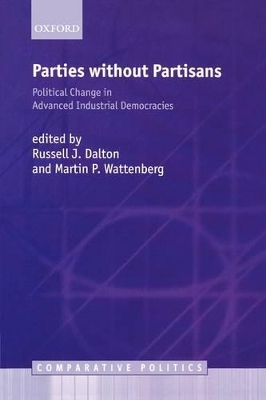If democracy without political parties is unthinkable, what would happen if the role of political parties if the democratic process is weakened? The ongoing debate about the vitality of political parties is also a debate about the vitality of representative democracy. Leading scholars in the field of party research assess the evidence for partisan decline or adaptation for the OECD nations in this book. It documents the broadscale erosion of the public's partisan
identities in virtually all advanced industrial democracies. Partisan dealignment is diminishing involvement in electoral politics, and for those who participate it leads to more volatility in their voting choices, an openness to new political appeals, and less predictablity in their party
preferences. Political parties have adapted to partisan dealignment by strengthening their internal organizational structures and partially isolating themselves from the ebbs and flows of electoral politics. Centralized, professionalized parties with short time horizons have replaced the ideologically-driven mass parties of the past. This study also examines the role of parties within government, and finds that parties have retained their traditional roles in structuring legislative action
and the function of government-further evidence that party organizations are insulating themselves from the changes transforming democratic publics. Parties without Partisans is the most comprehensive cross-national study of parties in advanced industrial democracies in all of their forms - in
electoral politics, as organizations, and in government. Its findings chart both how representative democracy has been transformed in the later half of the 20th Century, as well as what the new style of democratic politics is likely to look like in the 21st Century.
- ISBN10 0199253099
- ISBN13 9780199253098
- Publish Date 14 March 2002 (first published October 2000)
- Publish Status Active
- Publish Country GB
- Imprint Oxford University Press
- Format Paperback
- Pages 330
- Language English
